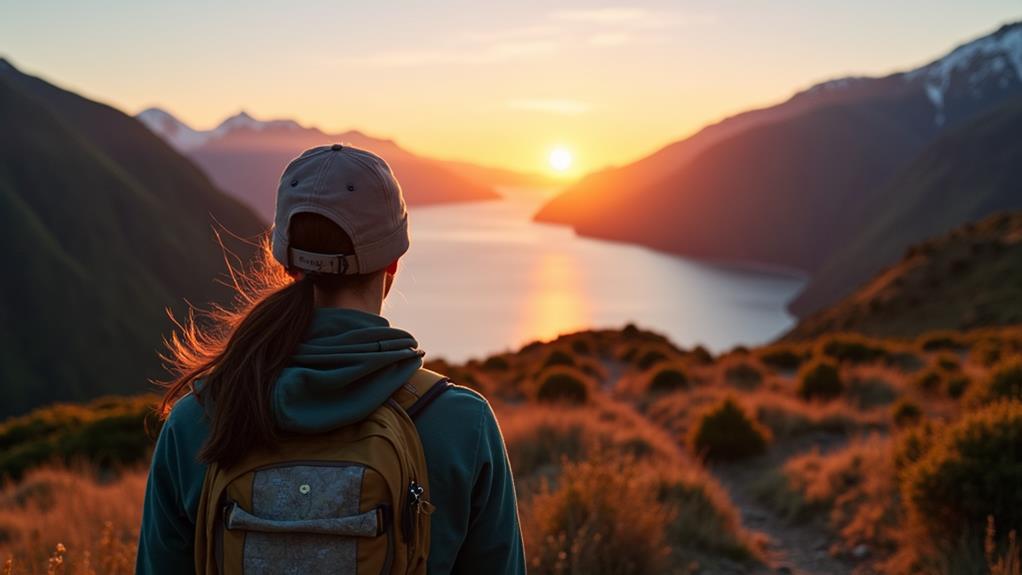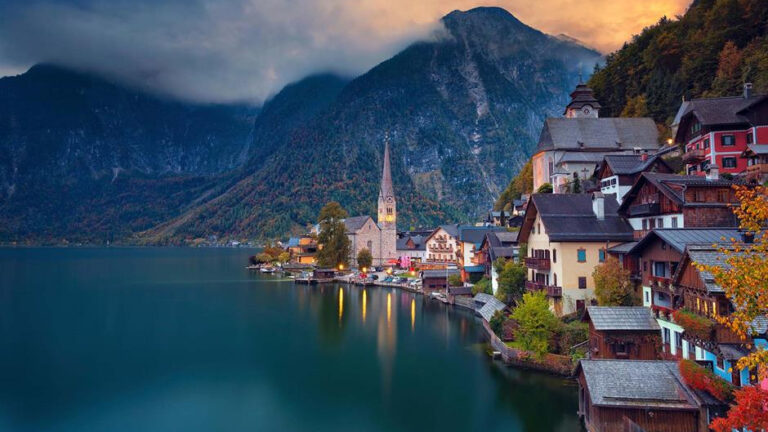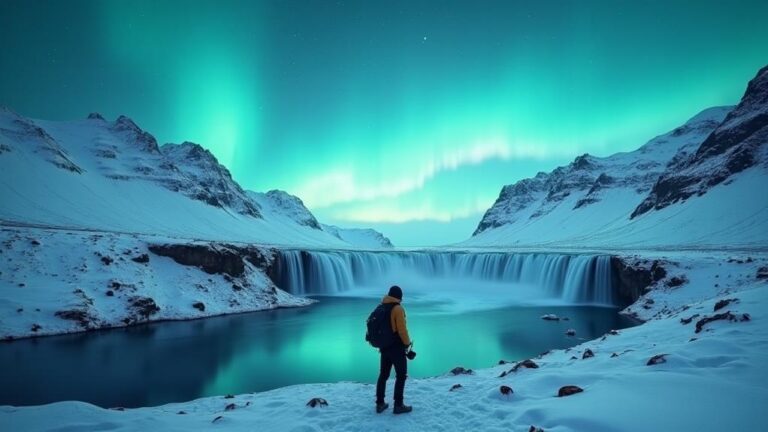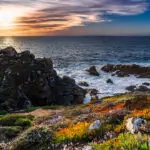It's a coincidence that you're planning to visit New Zealand just as the country is gearing up for its peak tourist season. As you prepare for your trip, you're probably wondering what sets New Zealand apart from other travel destinations. From its unpredictable weather to unique cultural practices, this country requires some insider knowledge to navigate smoothly. With its stunning landscapes and diverse wildlife, New Zealand is a traveler's paradise – but only if you're well-prepared. What are the essential tips you need to know to make the most of your trip to New Zealand?
Contents
- 1 Key Takeaways
- 2 Best Time to Visit New Zealand
- 3 Understanding New Zealand's Road Rules
- 4 Essential Items to Pack
- 5 Safety and Emergency Precautions
- 6 Exploring New Zealand's Outdoors
- 7 Dealing With New Zealand's Weather
- 8 Staying Connected in New Zealand
- 9 Respecting Maori Culture and Environment
- 10 Frequently Asked Questions
- 11 Conclusion
Key Takeaways
- Plan your trip around New Zealand's distinct seasons, with peak tourist season from December to February.
- Pack essential items like waterproof gear, comfortable hiking shoes, and insect repellent for New Zealand's rugged terrain.
- Stay safe and connected by being aware of surroundings, purchasing a local SIM card, and knowing emergency services numbers.
- Explore New Zealand's outdoors, from hiking trails to wilderness adventures, while respecting Maori culture and environment.
- Familiarize yourself with New Zealand's road rules, including speed limits and license requirements, to ensure a smooth journey.
Best Time to Visit New Zealand
You're planning a trip to New Zealand, and timing is everything. To make the most of your adventure, it's essential to understand the country's climate trends and tourist seasons.
New Zealand has a temperate climate, with four distinct seasons that vary in temperature and weather conditions.
The peak tourist season, which runs from December to February, is characterized by warm weather and long days.
This is the best time to visit if you enjoy outdoor activities like hiking, biking, and water sports. However, it's also the busiest time of the year, with prices for accommodation and tourist attractions at their highest.
If you prefer milder weather and smaller crowds, consider visiting during the shoulder season, which spans from March to May and September to November.
These periods offer pleasant temperatures, fewer tourists, and lower prices.
The winter months, from June to August, are ideal for skiing and snowboarding, but some attractions and roads may be closed due to snow.
Understanding New Zealand's climate trends and tourist seasons will help you plan your trip accordingly.
Understanding New Zealand's Road Rules
You're about to hit New Zealand's stunning roads, but before you do, it's essential to get familiar with the rules.
First, you'll need to know the speed limit rules, which vary from 10-110 km/h depending on the area and road type.
You'll also need to understand the requirements for driving licenses and decipher the unique road signs that'll guide you through the country's breathtaking landscapes.
Speed Limit Rules
As you hit the open roads in New Zealand, it's essential to familiarize yourself with the country's speed limit rules to ensure a safe and enjoyable journey.
The speed limits in New Zealand vary depending on the type of road and the area you're driving in. On most rural highways, the speed limit is 100 km/h, but this can decrease to 80 km/h or even 60 km/h when approaching towns or urban areas.
It's crucial to keep an eye on the speed limit signs as they can change frequently.
You'll also need to be aware of speed cameras, which are widely used in New Zealand to enforce speed limits. These cameras can be fixed or mobile, and they're often placed in areas where speeding is a concern, such as school zones, intersections, and areas with high accident rates.
If you're caught speeding, you can expect to receive a hefty fine, so it's best to stick to the speed limits and avoid the risk of a fine.
Driving License Requirements
Before hitting the roads in New Zealand, it's time to get familiar with the driving license requirements.
As a visitor, you're allowed to drive in New Zealand for up to 12 months using your overseas license. However, there are specific requirements to keep in mind.
If your license isn't in English, you'll need a translation or an International Driving Permit (IDP). An IDP is a translation of your license, recognized by New Zealand authorities.
When driving in New Zealand, you must carry your valid overseas license and either a translation or an IDP at all times.
If your overseas license is due to expire, it's best to renew it before arriving in New Zealand. If you plan on staying longer than 12 months or becoming a resident, you'll need to obtain a New Zealand driver's license.
It's essential to note that some countries have a reciprocal agreement with New Zealand, allowing for an International Conversion. Check with the New Zealand Transport Agency (NZTA) to see if your country is eligible for this conversion.
Road Sign Meanings
When navigating New Zealand's scenic routes, deciphering road signs can be the key to a stress-free adventure.
As part of your road trip prep, it's essential to understand the basics of New Zealand's sign language. You'll encounter various signs that indicate speed limits, directional guidance, and warnings.
Familiarize yourself with signs that indicate speed limits, such as the white circular signs with black numbers, which show the maximum speed allowed.
Directional signs, often with arrows, will guide you to your next destination.
Warning signs, typically yellow or orange in color, alert you to potential hazards, such as sharp curves, pedestrian crossings, or wildlife.
Other essential signs to recognize include those indicating traffic flow, like one-way arrows or pedestrian-only zones.
Additionally, signs with a red circle and a white interior indicate prohibitions, such as no entry or no parking.
By grasping these sign language basics, you'll be well-equipped to navigate New Zealand's roads with confidence.
Take the time to review New Zealand's road signs before your trip, and you'll be ready for a fun and stress-free adventure.
This prep work will pay off as you explore the country's stunning landscapes.
Essential Items to Pack
You'll need about seven essential items to make your New Zealand adventure seamless.
When it comes to packing essentials, consider the country's diverse climate and outdoor activities. Clothing choices are crucial, so pack layers for cooler mornings and evenings, especially in the mountains.
Include waterproof gear, such as a jacket and pants, to protect you from unexpected rain showers.
Don't forget to bring comfortable hiking shoes or boots, suitable for New Zealand's rugged terrain.
A good pair of socks can also make a big difference on long hikes. Insect repellent is another must-have, as sandflies and mosquitoes can be prevalent in certain areas.
Other essentials to pack include a portable charger for your phone or camera, a reusable water bottle, and a lightweight backpack for day trips.
If you plan on visiting during the summer months, be sure to bring sunscreen with a high SPF to protect your skin from the strong New Zealand sun.
With these essential items, you'll be well-prepared for an unforgettable adventure in New Zealand.
Safety and Emergency Precautions
During your New Zealand adventure, safety should always be top of mind.
You'll be exploring a new country, trying new activities, and meeting new people, so it's essential to be prepared for any situation. When it comes to personal safety, be aware of your surroundings, especially in crowded areas or at night.
Keep an eye on your belongings, and consider using a money belt or a secure bag. Avoid walking alone in dimly lit or isolated areas, and try to stick with a group or a guide.
In case of an emergency, know the local emergency services numbers. In New Zealand, dial 111 for police, fire, or ambulance services.
You can also contact your embassy or consulate for assistance. Make sure your phone is compatible with the local network, and consider purchasing a local SIM card or portable Wi-Fi hotspot.
Additionally, leave a copy of your itinerary with a friend or family member back home, so they can track your movements and raise an alarm if needed.
Exploring New Zealand's Outdoors
New Zealand's stunning landscapes and diverse geography make it an outdoor enthusiast's paradise. You'll find endless opportunities to immerse yourself in nature and push your limits.
From the rugged mountains to the pristine coastlines, New Zealand is a haven for outdoor enthusiasts.
If you're an avid hiker, you'll love exploring the country's extensive network of hiking trails, ranging from easy day walks to multi-day treks.
The famous Tongariro Alpine Crossing, Routeburn Track, and Milford Track are just a few of the many iconic trails that offer breathtaking views and unforgettable experiences.
If you're looking for a more immersive experience, consider embarking on a wilderness adventure. New Zealand's vast wilderness areas offer plenty of opportunities for camping, hunting, and fishing.
Take a guided tour or venture out on your own, and discover the thrill of exploring the great outdoors.
With its diverse landscapes and abundance of outdoor activities, New Zealand is the perfect destination for nature lovers and adventure seekers.
Whether you're a seasoned explorer or just starting out, you'll find something to suit your interests and skill level.
Dealing With New Zealand's Weather
As you venture outdoors in New Zealand, the country's notoriously changeable weather can quickly turn a perfect day into a challenging one.
To stay on top of the situation, it's essential to check weather forecasts regularly, especially if you're planning to hike, camp, or engage in other outdoor activities. Websites like MetService and local news channels provide accurate and up-to-date forecasts, helping you make informed decisions about your daily itinerary.
When it comes to packing, adopt flexible strategies that cater to New Zealand's unpredictable weather.
Bring layers of breathable clothing that can be easily added or removed, and don't forget waterproof gear, including a jacket and pants. A good pair of hiking boots or shoes with waterproofing treatment can also make a huge difference. Quick-drying fabrics and a portable umbrella can also save the day in case of unexpected rain showers.
Staying Connected in New Zealand
Staying connected in New Zealand is easier than you think, with a range of options available to keep you in touch with family, friends, and the world at large.
You can purchase a local SIM card or rent a portable Wi-Fi hotspot for data access and phone use. Major carriers like Spark, Vodafone, and 2degrees offer competitive plans and coverage.
Phone etiquette in New Zealand is similar to other countries – be mindful of noise levels in public areas and turn your phone off during meetings or when interacting with locals.
Wi-Fi availability is widespread in urban areas, with many cafes, restaurants, and accommodation providers offering free or paid internet access.
However, rural areas may have limited connectivity, so it's essential to plan ahead and purchase a data plan or portable hotspot if you need to stay connected.
You can also use Wi-Fi networks at libraries, community centers, and i-Sites (information centers) if you're in a pinch.
Don't worry about running out of battery – many cafes and restaurants have power outlets for charging on the go.
Respecting Maori Culture and Environment
When exploring New Zealand, you're not just experiencing a country – you're immersing yourself in its rich Maori heritage and breathtaking natural landscapes.
As you delve deeper into the culture, remember to respect Maori protocol, which emphasizes the importance of manaakitanga (respect) and kaitiakitanga (guardianship).
You can show respect by learning basic Maori phrases like 'kia ora' (hello) and 'whakawhanaungatanga' (a greeting that establishes a connection).
Cultural immersion is an integral part of the New Zealand experience, and there are many ways to engage with Maori culture.
Visit a marae (Maori meeting ground) to learn about traditional customs and protocols.
Attend a cultural performance, where you can witness the vibrant storytelling of kapa haka (Maori singing and dancing).
Take a guided tour with a Maori guide, who can share their knowledge of the land, their ancestors, and their history.
Frequently Asked Questions
Can I Use My Driver's License in New Zealand?
You're planning a Kiwi road trip and wondering if your driver's license will cut it. Luckily, you can use it for international driving in New Zealand, making rental car options a breeze to explore the country.
Is Tap Water Safe to Drink in New Zealand?
You'll be stoked to know that New Zealand's tap water is top-notch, thanks to rigorous testing and strict water quality standards. Tap safety isn't an issue, so go ahead and refill your bottle – it's safe to drink.
Can I Bring My Drone to New Zealand?
You're planning to capture stunning aerial shots with your drone in New Zealand. Familiarize yourself with drone regulations and flight restrictions before flying, as some areas are off-limits, and permits may be required.
Are Credit Cards Widely Accepted in New Zealand?
When traveling abroad, you'll find that credit cards are widely accepted in New Zealand. You'll likely incur credit card fees and foreign transaction charges, so check your card's policy before swiping to avoid surprises.
Can I Use Foreign Currency in New Zealand?
When traveling abroad, you'll want to know if you can use foreign currency in New Zealand. You can't, but you can exchange currency at airports, banks, or currency exchange services, or withdraw from foreign banks with ATMs.
Conclusion
As you embark on your New Zealand adventure, the rugged landscape unfolds like a treasure map, guiding you through untouched wilderness and vibrant culture. With each step, the sounds of kiwi birdsong and rustling leaves fill the air. With these essential travel tips, you're ready to navigate the twists and turns of this island paradise. Your journey is a canvas, waiting for the vibrant colors of discovery and memories to be etched forever.









